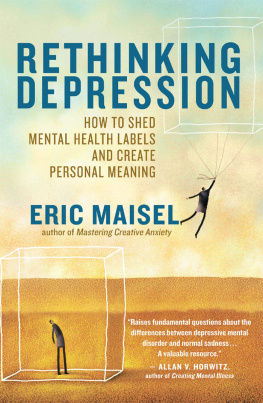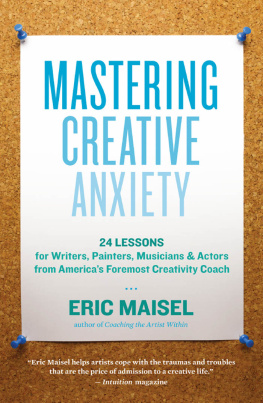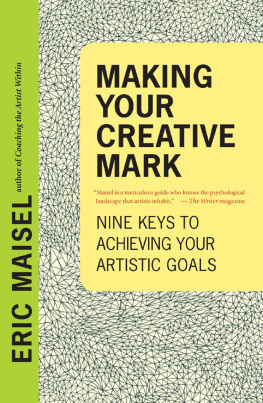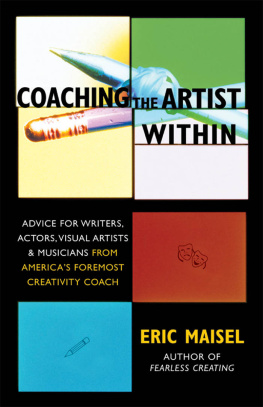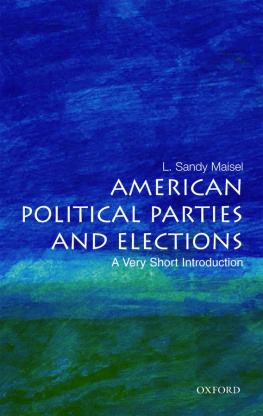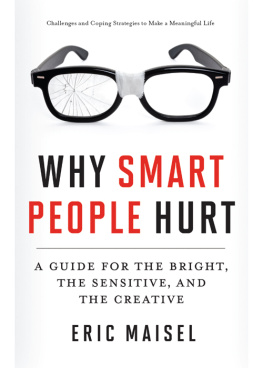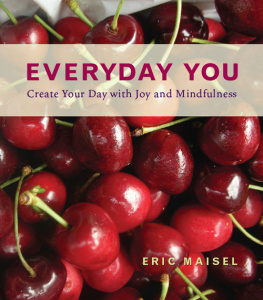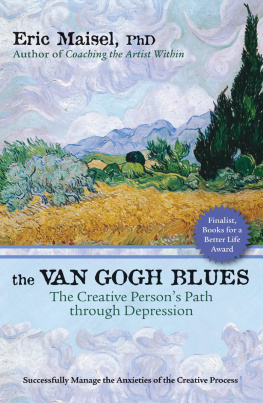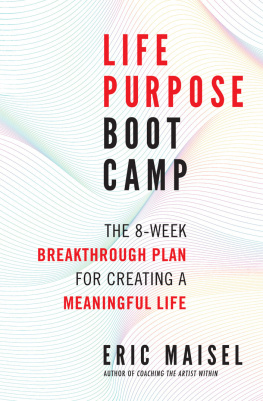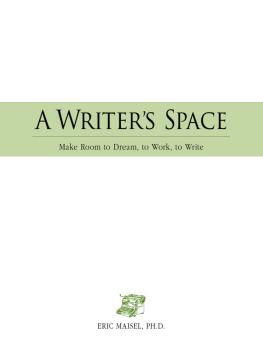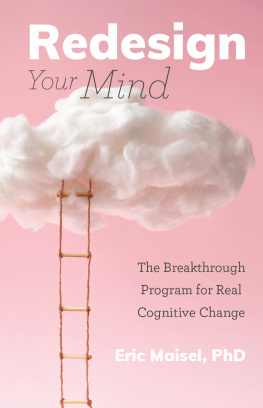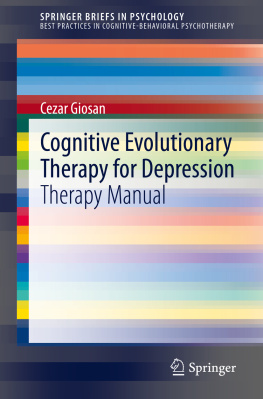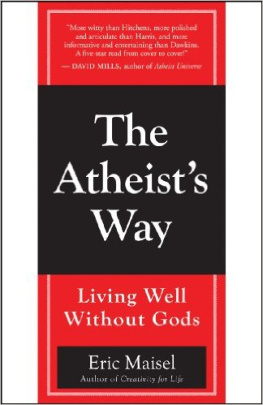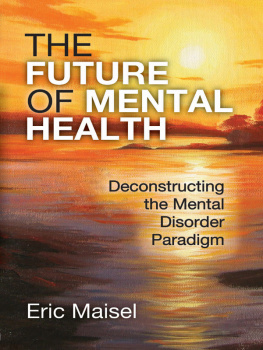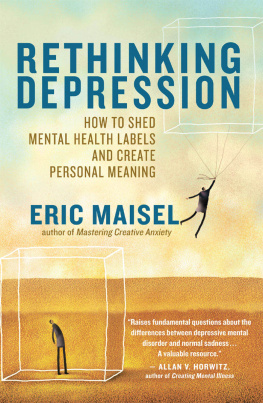
More Praise for Rethinking Depression
This book helps us to understand how and why sadness and suffering have been transformed into a medical or psychological disorder called depression, and why that transformation has left us all sicker and weaker than we might otherwise be. The suggested remedy to our modern alienation, the injunction to abandon the search for happiness and to live according to our principles, stands as a challenge and an inspiration to us all. I would recommend this book to sufferers and professionals and anyone who is interested in a deeper understanding of mental health issues.
Joanna Moncrieff, author of The Myth of the Chemical Cure and senior lecturer in social and community psychiatry,
University College London
The world is shrinking and the American model of mental illness is being sold globally. Soon there will be billions of depressed people worldwide taking antidepressants to medicate away their unhappiness. Eric Maisels brilliant new book explains this phenomenon with awesome clarity and simplicity and goes the next step by proposing what people can do to sidestep mental health labeling and create their own sensible program for healthy living.
Nancy Pine, author of Educating Young Giants
From Reviews of Eric Maisels Previous Books
Eric Maisels psychological approach sets his work apart.
Library Journal
Eric Maisel has made a career out of helping artists cope with the traumas and troubles that are the price of admission to a creative life.
Intuition magazine
Eric Maisels books should be required reading for anyone involved in the arts, especially students and their teachers. Maisel demystifies the process of creating art.
Theatre Design and Technology Journal
Maisel is a meticulous guide who knows the psychological landscape that artists inhabit.
The Writer magazine
Praise for Brainstorm by Eric Maisel and Ann Maisel
Presents a new way of thinking about how to turn brain potential into passion, energy, and genuine accomplishments.
Camille Minichino, physicist and author of the
Periodic Table Mysteries
All too often people overlook the basics of a productive life, distracted by multitasking, marketing, and information overload. With this provocative departure from the usual lifestyle manual, the Maisels are out to break us of those tendencies.
Publishers Weekly
[Brainstorm] is a book that should be read by all who want to live their life in a way that is vital and leaves some kind of legacy. Its not about fame and fortune, but rather, about ensuring that this brief span that we have on Earth is one that has value where we leave some kind of impression. Theres nothing that matters more.
Seattle Post-Intelligencer
RETHINKING
DEPRESSION
ALSO BY ERIC MAISEL
NONFICTION
Affirmations for Artists
The Art of the Book Proposal
The Atheists Way
Become a Creativity Coach Now!
Brainstorm
Coaching the Artist Within
Creative Recovery
The Creativity Book
Creativity for Life
Deep Writing
Everyday You
Fearless Creating
A Life in the Arts
Living the Writers Life
Mastering Creative Anxiety
Performance Anxiety
The Power of Sleep Thinking
Sleep Thinking
Ten Zen Seconds
Toxic Criticism
Communication Tips at Work
Communication Tips for Families
The Van Gogh Blues
What Would Your Character Do?
Write Mind
A Writers Paris
A Writers San Francisco
A Writers Space
Your Best Life in the Arts
FICTION
Aster Lynn
The Blackbirds of Mulhouse
The Black Narc
Dismay
The Fretful Dancer
The Kingston Papers
Murder in Berlin
JOURNALS
Artists Speak
Writers and Artists on Devotion
Writers and Artists on Love
MEDITATION DECKS
Everyday Calm
Everyday Creative
Everyday Smart
HOME STUDY COURSE
The Meaning Solution

Copyright 2012 by Eric Maisel
All rights reserved. This book may not be reproduced in whole or in part, stored in a retrieval system, or transmitted in any form or by any means electronic, mechanical, or other without written permission from the publisher, except by a reviewer, who may quote brief passages in a review.
Portions of chapter 7 from The Van Gogh Blues by Eric Maisel. Copyright 2002 by Eric Maisel. Reprinted by permission of Rodale Inc., Emmaus, PA 18098.
Portions of chapter 8 first appeared in The Atheists Way by Eric Maisel. Copyright 2009 by Eric Maisel. Reprinted by permission of New World Library.
The material in this book is intended for education. It is not meant to take the place of diagnosis and treatment by a qualified medical practitioner or therapist. No expressed or implied guarantee as to the effects of the use of the recommendations can be given nor liability taken.
Text design by Tracy Cunningham
Library of Congress Cataloging-in-Publication Data
Maisel, Eric, date.
Rethinking depression : how to shed mental health labels and create personal meaning / Eric Maisel.
p. cm.
Includes bibliographical references and index.
ISBN 978-1-60868-020-7 (pbk. : alk. paper)
1. Depression, Mental. 2. Mental illness. 3. PsychiatryPhilosophy. I. Title.
RC537.M333 2012
616.8527dc23
2011041631
First printing, February 2012
ISBN 978-1-60868-020-7
Printed in Canada on 100% postconsumer-waste recycled paper

10 9 8 7 6 5 4 3 2 1
For Ann,
thirty-five years into this adventure
CONTENTS
I HAVE A BEAUTIFUL STORY to tell you about how you can take a stand, make personal meaning, and positively influence your moods. It is not a new story. For thousands of years existential thinkers have pressed us to get a grip on our minds and make strong choices about our relationship to life. They have advised us to seek mature happiness and make ourselves proud by boldly facing the inequities and exigencies of life. Their message: Decide to live until death wrests away your freedom.
You can lead this life of personal fulfillment, but first you must get out from under the shadow of the mental disorder model of life. Today tens of millions of people believe that they have the mental disorder of depression. Maybe you are one of them. In addition, virtually everyone is convinced that, whether or not they have the disorder, it surely exists apparently in epidemic proportions. In this book I will ask you to think through what the term mental disorder means, how the term is employed, and the implications of its definition. My question to you: Does the mental disorder called depression really exist?
Never not once am I going to say that you are not experiencing whatever it is that you may be experiencing. Never not once am I going to say, Just cheer up! Never not once am I going to imply that nothing biological is going on. What I do hope to demonstrate is that there is something profoundly wrong with the way we name and treat certain human phenomena. When you call something a mental disease or a mental disorder you imply a great deal about its origins, its treatment, its intractability, and its locus of control. The mental health industry has its reasons for calling lifes challenges disorders, but we have few good reasons to collude with them.
Next page
